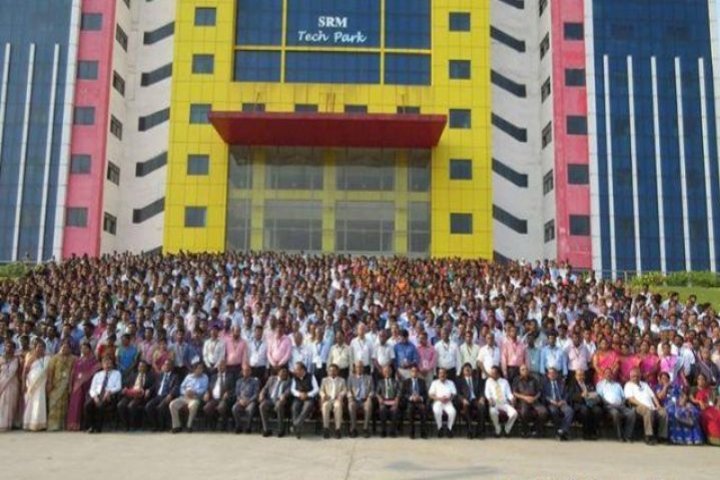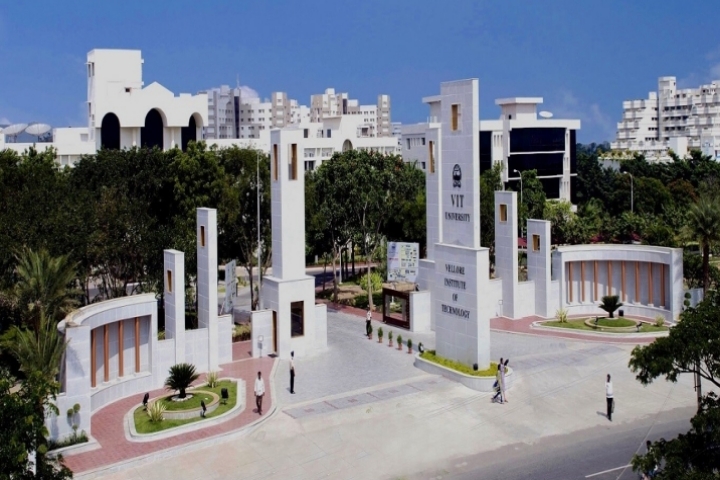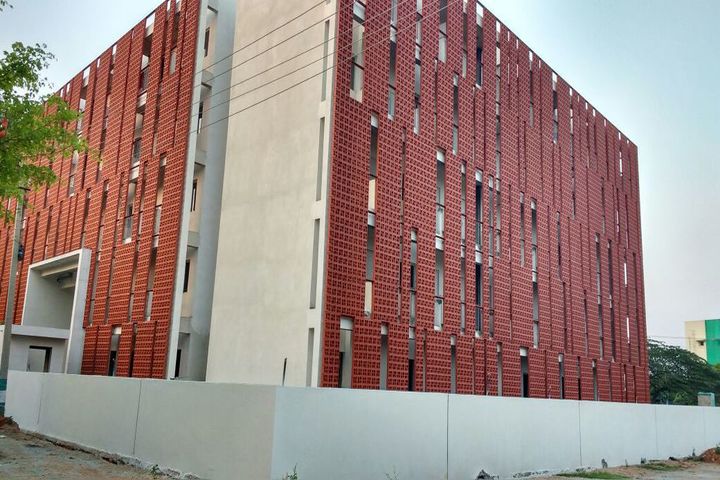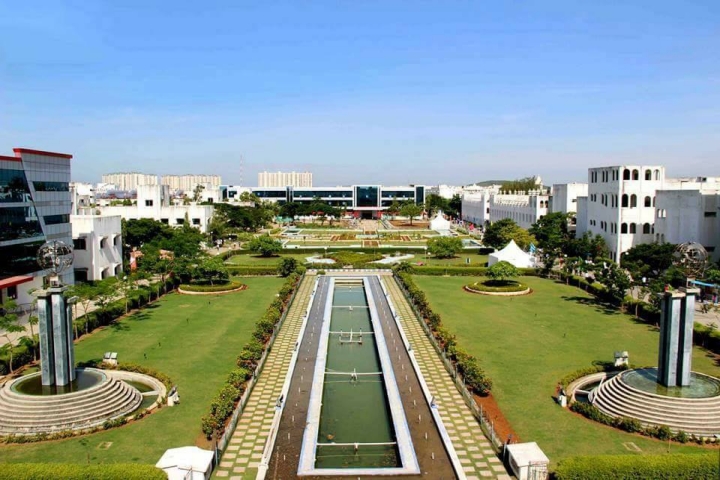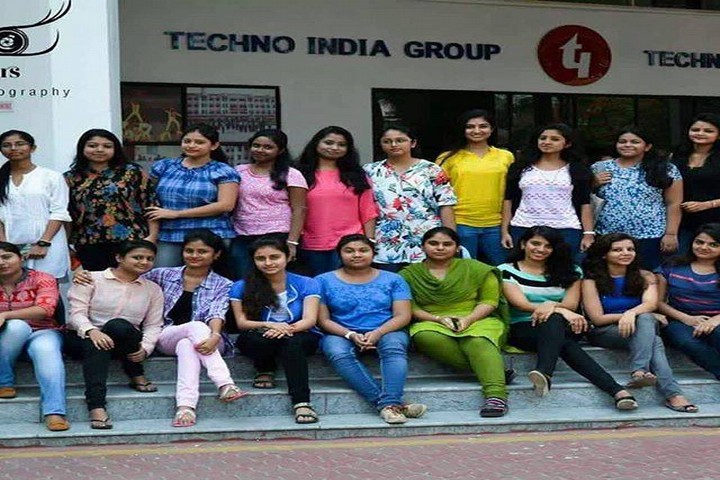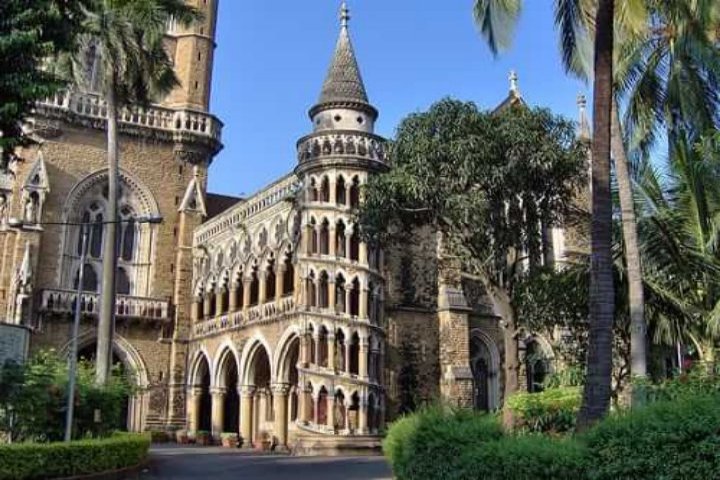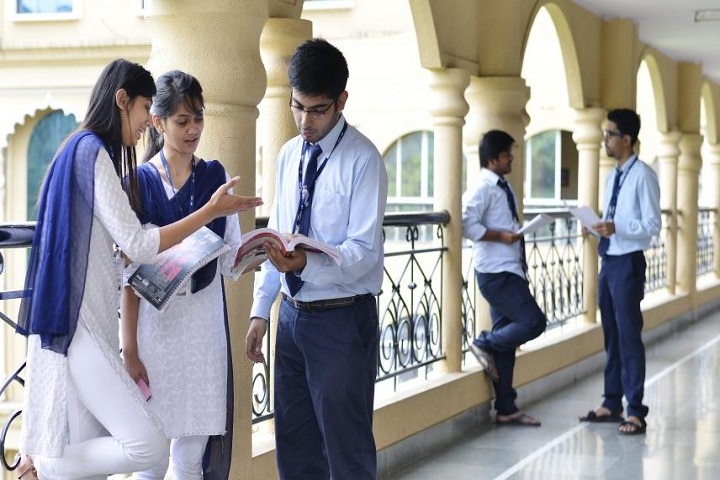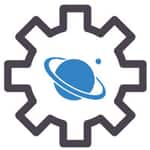
Blockchain Course Details - Fees, Subjects, Syllabus, Duration, Eligibility, Career Scope
Degrees offered: B.E /B.Tech, B.C.A., M.Sc., M.C.A., B.Sc.(Hons)
What is Blockchain
A Blockchain course provides students with an introduction to blockchain technology, its principles, and applications across industries. Students learn how blockchain works as a secure, decentralised ledger system, supporting cryptocurrencies, smart contracts, and digital assets. The course focuses on building a strong foundation for learners to explore blockchain and future opportunities.
The Blockchain curriculum covers cryptography, consensus mechanisms, blockchain architecture and decentralised applications (DApps). Learners also gain hands-on training in blockchain platforms and tools used by professionals. It also includes project work and case studies, and students develop strong analytical and technical skills, preparing them to solve real-world problems using blockchain technology in various domains.
Successfully completing a blockchain course opens various career opportunities as blockchain developers, consultants, analysts, or entrepreneurs. Industries such as finance, healthcare, supply chain, and cybersecurity increasingly rely on blockchain applications. Students enrolled in this course learns about in-demand blockchain skills, making it ideal for graduates, professionals, and tech enthusiasts looking to build careers in emerging technologies.
Blockchain Course Details- Highlights
| Particulars | Values |
|---|---|
Course Type | UG and PG |
Blockchain Course Admission Procedure | Entrance exam/Merit-based |
Blockchain Course Duration | UG - 4 Years PG - 2 Years |
Blockchain Course Fees | Rs. 6 to 7 Lakh |
Blockchain Average Salary | Rs. 9.4 LPA (Blockchain Developer) |
Blockchain Course Career Options | Blockchain Architect, Cryptocurrency Developer, blockchain Business Analyst, blockchain Solutions Architect, Cryptocurrency Mining Engineer |
Top Private Blockchain Colleges in India with Fees
Blockchain courses are offered by a variety of private universities in India. Admissions to these colleges are granted based on past academic performance and entrance examination scores. Students should visit the official website of their desired institute to know other course details. The table below lists some of the top private colleges in India.
| Colleges | NIRF Ranking | Fees |
|---|---|---|
| SRM University, Chennai | 14 | Rs. 17 Lakhs |
| VIT Vellore | 16 | Rs. 7.80 Lakhs |
| KIIT | 36 | Rs. 18.35 Lakhs |
| SASTRA University | 40 | Rs. 7.53 Lakhs |
| Sathyabama University | 67 | - |
| Shoolini University, Solan | 101-150 | Rs. 7.80 Lakhs |
| Sharda University, Greater Noida | 101-150 | Rs. 10.77 Lakhs |
| NCU, Gurgaon | 101-150 | Rs. 12.75 Lakhs |
| Presidency University | 201-300 | Rs. 9 Lakhs |
Top Government Blockchain Colleges in India with Fees
Numerous government Indian universities offer UG and PG degrees in Blockchain. The admissions process for these colleges is determined by the applicant's entrance exam results and prior academic standing. Government institutions are renowned for their nominal fees and good educational facilities. Some of the best Government institutions in India are included in the table below:
| Colleges | Fees |
|---|---|
| DUK | - |
| Mumbai University | Rs. 4.84 Lakhs |
Eligibility Criteria (UG & PG) of Blockchain
For every course, there are certain eligibility criteria that the candidate has to meet to be eligible for the respective course. To get admitted to the college of their choice, Blockchain students must complete certain basic requirements. The following are the requirements for enrolling in a Blockchain programme.
Eligibility Criteria for UG Degrees
Candidates who seek admission in Blockchain courses at any university must fulfil certain eligibility criteria. This will help them to qualify for the university’s merit list. While these criteria may vary in certain aspects from university to university, the basic common points include:
- Candidates require a minimum of 50 per cent marks in class 10 as well as in the higher secondary exam, with Physics, Chemistry and Biology as main subjects.
- Some universities also need the candidates to either sit for the recognised entrance exams like JEE Main or UPSEE or their own entrance exams.
Top Entrance Examinations for UG Degrees
Aspiring candidates must take an entrance exam as the initial step in their journey to start the programme. Qualifying this exam is crucial, as it determines their eligibility to enrol in the desired course. Success in the entrance exam paves the way for admission into reputable institutions, setting the foundation for a career in blockchain.
| Exam Name | Exam Level | Conducting Body | Exam Schedule |
|---|---|---|---|
University Level Exam | Sharda University | - | |
National Level Exam | National Testing Agency |
Eligibility Criteria for PG degrees
Students who meet the requirements can pursue a Master's degree in Blockchain at the postgraduate level if they want to continue studying in the discipline. It equips graduates with specialised skills. Some of the common criteria include:
- A relevant undergraduate degree in computer science, IT, or engineering.
- Proficiency in programming and basic understanding of blockchain technology.
- They must score at least 60 per cent in 10+2 from a recognised institute in India.
College Predictors VIEW ALL
Scope of Blockchain in India and Abroad
Blockchain is a promising technology set to transform how data is managed globally. Governments like Estonia are leading examples, using blockchain in judiciary, health, and commerce. Other countries advancing include the Netherlands, United States, Dubai, Malta, Israel, Sweden, Colombia, European Commission, and South Africa.
In India, the adoption of blockchain technology is gradually gaining momentum, with initiatives in sectors like finance and supply chain management. The Technology in the country is in its infancy, resulting in lower competition currently. However, learning blockchain today promises high demand in the future, both domestically and internationally.
Course Fees Blockchain
| Minimum Fees | Maximum Fees | |||
|---|---|---|---|---|
| Private | Government | Private | Government | |
| UG | ||||
| PG | ||||
| DOCTORAL | ||||
Course Subjects
In this section, we will discuss the syllabus of UG and PG level courses in the Blockchain field. Some of the core topics covered in the course curriculum are Productivity Software, Computer Architecture and Organisation, and Data Science and Python. Students are advised to check the syllabus either on the official website of the college or the programme brochure.
Blockchain Syllabus for PG Courses
The postgraduate course in Blockchain introduces students to advanced topics such as Transaction Management using MIS, Research Methodology, and Cloud Platforms. Students gain in-depth knowledge and specialised skills in blockchain technology and data structure. The syllabus outlined below is from MIT-WPU.
| Semester 1 | |
| Advanced Data Structure | Advanced Database Management System |
| Fundamentals of Blockchain Ecosystem | Transaction Management Using Software |
| Mini Project I | Research Methodology |
| Scientific Studies of Mind, Matter, Spirit and Consciousness | Yoga |
| Semester 2 | |
| Full Stack Development | Smart Contracts Programme |
| Mini Project II | Research Paper Writing |
| Cognitive Skills | Programme Elective 1 (PE 1) |
| Programme Elective II (PE 2) | Peace Building and Global Initiatives |
| Semester 3 | |
| Blockchain Architecture | Hyper Ledgre Technology |
| Cloud Computing | Mini Project III |
| NodeJS | Programme Elective 3 (PE 3) |
| Programme Elective 4 (PE 4) | - |
| Semester 4 | |
| Full-Time Industrial Training | - |
Careers in Blockchain
Blockchain experts are needed in finance, healthcare, and logistics. They can work as cloud engineers, consultants, or research analysts. Financial companies, tech firms, government agencies, and startups hire them to improve business models, ensure data security, and drive innovation. The following are some of the Job profiles under Blockchain.
| Job Profiles | Job Description |
|---|---|
Blockchain Architect/Developer | Blockchain developers build, develop, maintain and secure the distributed ledger system based on blockchain. They make sure that the flow of transactions, be it financial transactions or other transactions, is kept smooth, secure and efficient. |
Cryptocurrency Developer | A Cryptocurrency Developer designs and implements secure blockchain solutions for digital currencies, ensuring robust transaction mechanisms. They specialise in creating decentralised applications and enhancing blockchain protocols. |
Digital Transformation Product Manager | Digital Transformation Product Manager helps the companies visualise the positive things that they can achieve if they upgrade their traditional transaction storage system to a blockchain-based one. For example, he can pitch a blockchain-based ledger system to a bank by showing them the security and operational benefits. |
Upcoming trends
Blockchain's widespread adoption raises questions about future career paths. Post-adoption challenges like electricity consumption and monetary efficiency will drive innovations.Future careers will focus on making blockchain more energy-efficient and cost-effective.Understanding quantum computing alongside blockchain will be essential for staying relevant.
- Energy efficiency improvements
- Integration with quantum computing
- Growth of decentralised finance
Job Profiles and Top Recruiters
Top Recruiters
- Amazon
- Microsoft
- Reliance Jio
- Tech Mahindra
- Accenture
- Wipro
Average Salary
There are numerous career opportunities in the field of Blockchain, including roles such as Blockchain Subject matter Expert, Digital Transformation Product Manager, and Blockchain Architect. Salaries can vary based on factors such as location, job profile, and the candidate's skills and experience. Below are the average salaries for various positions:
| Job Profiles | Average Salary |
|---|---|
Blockchain Subject Matter Expert | Rs. 9.4 LPA |
Digital Transformation Product Manager | Rs. 23 LPA |
Blockchain Architect | Rs. 8.2 LPA |
Blockchain UX Designer | Rs. 10 LPA |
Source: Ambition Box
Required Skillset for Blockchain
Blockchain development needs a mix of technical skills. Developers should understand how blockchain works, including cryptography and smart contracts. They need to know programming languages like Solidity and JavaScript, be good at solving problems, and have a strong sense of security. Attention to detail is also important.However, they can generally be categorised into several key areas:
- Programming Skills
- Patience
- Cryptography Skills
- Logical deduction
- Continuous learning
Course Curriculum for Blockchain
A Blockchain course usually includes basics of blockchain technology, how it uses cryptography, and smart contracts. It covers how decentralised apps work, different ways to agree on data, and the structure of blockchains. Students also get hands-on practice with blockchain tools and learn about its practical uses and security.A model curriculum of BD or BE course is as follows:
- CS focused Physics
- CS focused Chemistry
- CS focused Maths
- Focus on the specialisation - in this case, blockchain
- Programming language
- OS
- Object-Oriented Programming
- Software Development with a focus on blockchain
- Database Management
- Soft Skills
- Industry and Manufacturing focused skills
Popular Blockchain Entrance Exams in India
Frequently Asked Questions (FAQs)
Question: What are the career prospects after a blockchain course?
Answer :
Graduates can work as blockchain developers, consultants, or cybersecurity experts in various industries globally.
Question: How can blockchain benefit businesses?
Answer :
Blockchain enhances transparency, security, and efficiency in transactions, reducing costs and fraud risks.
Question: Are there online courses available for blockchain?
Answer :
Yes, many reputable platforms offer online courses and certifications in blockchain technology.
Question: What programming languages are required?
Answer :
Knowledge of languages like C++, Java, or Solidity is beneficial for blockchain development.
Question: Is blockchain only about cryptocurrencies like Bitcoin?
Answer :
No, blockchain has applications beyond cryptocurrencies, including supply chain management, healthcare records, and voting systems.





